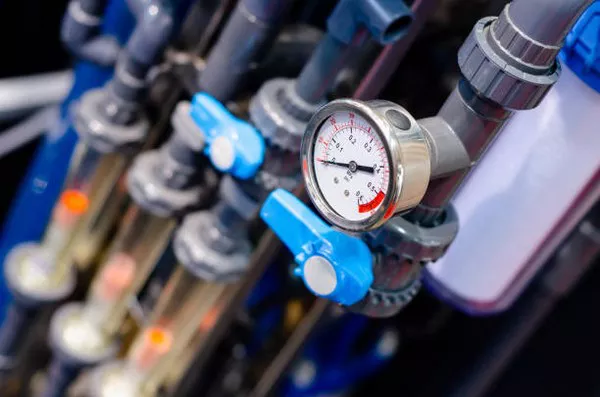Instrumentation and process control play a crucial role in modern industrial operations, ensuring efficiency, safety, and reliability. These two interconnected fields are integral components of various industries, ranging from chemical and petrochemical to manufacturing and energy production. In this article, we will delve into the fundamentals of instrumentation and process control, exploring their significance, components, and applications.
Instrumentation:
Instrumentation refers to the science and art of measurement and control. In an industrial context, it involves the use of specialized devices, known as instruments, to monitor, measure, and control various parameters in a process. These parameters can include temperature, pressure, flow, level, pH, and more, depending on the industry and the specific process.
Key Components of Instrumentation:
Sensors: Sensors are devices that convert physical or chemical quantities into measurable signals. They play a pivotal role in gathering information about the process. Common types of sensors include temperature sensors, pressure transmitters, level detectors, and flow meters. The data collected by these sensors serves as the foundation for effective process control.
Transmitters: Transmitters are responsible for converting the signals generated by sensors into standardized signals, typically electrical signals like 4-20 mA or 0-10 V. These standardized signals make it easier to transmit and interpret the data over long distances without significant loss or distortion.
Controllers: Controllers receive signals from sensors and transmitters, compare them to desired setpoints, and determine the necessary adjustments to maintain optimal process conditions. There are various types of controllers, including proportional-integral-derivative (PID) controllers, which are widely used in industrial automation.
Actuators: Actuators are devices that carry out the adjustments recommended by controllers. They can be valves, motors, or other mechanical devices that control the flow of materials, pressure, or other process variables. The goal is to bring the process back to the desired state as efficiently as possible.
Process Control:
Process control involves managing the variables in a production or manufacturing process to ensure consistent and desirable outcomes. The primary objective is to maintain process parameters within specified limits, preventing deviations that could compromise product quality, safety, or efficiency.
Types of Process Control:
Open-Loop Control: In open-loop control, a predetermined input is applied to the system, and the output is observed without any feedback. This method is simple but lacks the ability to respond to changes in the process. It is often used in processes where variations are minimal and predictable.
Closed-Loop Control: Closed-loop control, also known as feedback control, involves constantly monitoring the system’s output and adjusting the input to maintain the desired conditions. This approach is more sophisticated and widely applied in industries where processes are dynamic and subject to fluctuations.
Feedforward Control: Feedforward control anticipates disturbances in the process and adjusts the input accordingly before the disturbances affect the output. This proactive approach enhances control system performance and minimizes the impact of external factors on the process.
See Also: What Is Instrumentation In Electronics?A Comprehensive Overview
Applications of Instrumentation and Process Control:
Chemical and Petrochemical Industry: In chemical and petrochemical processes, precise control over temperature, pressure, and chemical concentrations is critical for ensuring the quality and safety of the final products. Instrumentation and process control systems play a vital role in maintaining optimal conditions and preventing hazardous situations.
Manufacturing: In manufacturing, especially in industries like automotive and electronics, precise control over production processes is essential for achieving consistent product quality. Automated systems with advanced instrumentation ensure that each product meets specified standards.
Energy Production: In power plants, instrumentation and process control are integral to optimizing energy production, reducing waste, and ensuring the safety of the entire operation. Control systems manage variables such as steam pressure, turbine speed, and fuel flow to maximize efficiency.
Water Treatment and Environmental Control: Instrumentation is crucial in water treatment plants for monitoring water quality parameters, such as pH and turbidity. Process control ensures that treatment processes are adjusted in real-time to meet regulatory standards and maintain environmental sustainability.
Conclusion:
Instrumentation and process control are indispensable components of modern industrial processes, providing the means to monitor, measure, and regulate key parameters. As industries continue to advance, the demand for sophisticated instrumentation and control systems will only grow. The integration of these technologies not only enhances efficiency and product quality but also contributes to overall safety and sustainability in industrial operations. Continuous advancements in sensor technology, automation, and data analytics further underscore the evolving nature and importance of instrumentation and process control in shaping the future of industrial processes.

